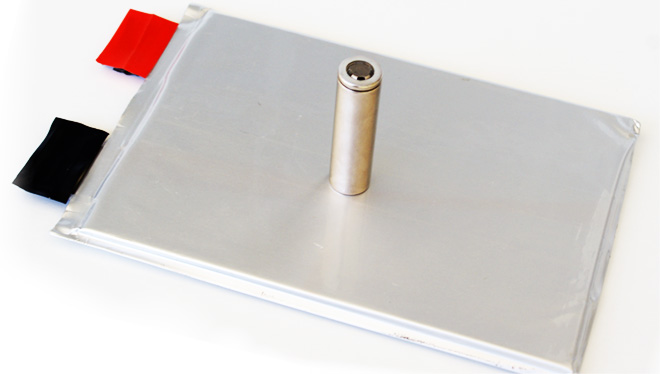Sony, the company that introduced the world’s first commercial lithium-ion battery in 1991, is already well along the road to a Li-ion replacement, according to Nikkei Technology.
The company is reportedly developing high-capacity lithium-sulfur and magnesium-sulfur batteries, aiming for a 40% increase in volumetric capacity to 1,000 Wh/l, and plans to commercialize the new chemistries by 2020, initially for the smartphone market.
The Li-S battery uses a sulfur compound for the positive electrode and metal lithium for the negative electrode. Metal lithium has been the subject of much research, but so far has hardly been used for rechargeable batteries because of several difficulties, including its tendency to generate dendrites (root-like lithium growths that can cause a short circuit).
Nikkei Technology reports that Sony considers Li-S a promising technology despite the challenges, and that other manufacturers are also hard at work developing batteries with sulfur-based electrodes.
Source: Nikkei Technology via Green Car Congress


















































































